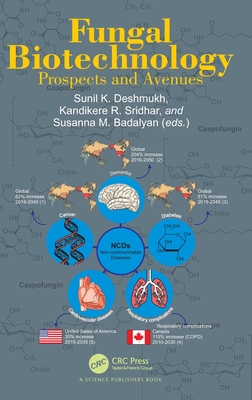
Fungal Biotechnology(Progress in Mycological Research)
真菌生物技术:前景与途径
生物工程售 价:
¥
1862.00
发货周期:国外库房发货,通常付款后3-5周到货!
出 版 社
出版时间
2022年08月18日
装 帧
精装
页 码
450
开 本
234 x 156 mm (6.14 x 9.21
语 种
英文
版 次
1
综合评分
暂无评分
- 图书详情
- 目次
- 买家须知
- 书评(0)
- 权威书评(0)
图书简介
Traditional studies in mycology mainly deal with damage caused by fungi, for instance, diseases of plants, animal ailments, air-borne pathogens, decomposition of wood and production of mycotoxins in food. Applied mycology focuses on the fermentation of foods (flours, bakery products, cheese and others) and production of fermented products (wine, beer and spirit). Further value-added approaches show the significance of fungi in the production of bioactive metabolites and pharmaceuticals used in the treatment of human diseases, including cancer, and plant diseases (e.g. pest control). Due to a dependence on fossil resources, production of bio-renewable merchandise gained importance and fungi serve as potential biological agents in sustaining global economy. Recent developments in mycology revealed their significance in the fields of advanced research, in particular building materials, packaging resources, electronic devises and leather-like goods. In addition, fungi possess several qualities to degrade non-biodegradable compounds in the ecosystem and assist in sustainable waste bioremediation. This book covers the current biotechnological advances and bio-prospect potential of fungi. Fungal biopolymers possess various applications, including prebiotics, therapeutics, immunoceuticals, drug-discovery and drug-delivery. Fungal bioactive metabolites have several implications beyond antibiotics, such as volatiles, biofuels, nematicides and pigments. They also serve as prospective tools in the production of nanoparticles of medicinal, nutritional and industrial significance. In view of environmental protection, fungal activity and products aid in bioremediation via degradation of xenobiotics and solid wastes. Fungi can produce agriculturally compatible metabolites to enhance plant production. Knowledge on fungal genomics facilitates the gene manipulation towards biotechnological applications (disease diagnosis, pathogen detection, gene expression
本书暂无推荐
本书暂无推荐















